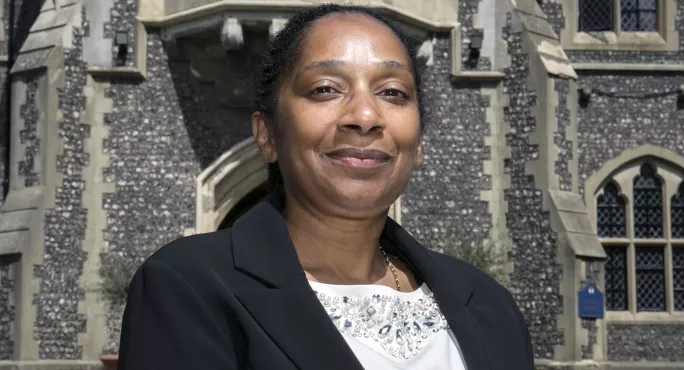A London headteacher has criticised the fact that no account is taken of the traumatic impact knife crime has on a school in judging its performance.
Joan Deslandes, who leads Kingsford Community School in Newham, East London, has spoken about the fallout from three separate pupil murders that happened within a short space of time.
Kingsford sixth former Stephen Boachie, 17, was knifed through the heart outside a pub. Less than three months later, another pupil – 15-year-old John Regis – was stabbed to death on his way home from the cinema.
The following month, 14 -year-old Paul Erhahon was stabbed outside a block of flats.
Ms Deslandes highlighted that no account has been taken of the impact of these tragedies on the school, including the trauma experienced by its pupils.
“There are no league tables that actually have done an assessment of the impact that that has on communities, on mental health and how you actually help pupils to drag them out of some of the challenges they face,” she said.
“The impact of these things on mental health is another story altogether, which I cannot begin to explain and when they are looking at achievements of inner city schools, is often forgotten.”
Ms Deslandes was speaking at the Festival of Higher Education at the University of Buckingham, which concludes today.
While her comments related to events at her school that took place in 2007, they are likely to resonate with other headteachers amid reports of rising violent crime in the capital in recent months.
Just last week, a 16-year-old wearing his school uniform was stabbed in Streatham, south-west London.
And last month, a teenager from Enfield, North London, who lost part of his lung when he was knifed in a random attack, complained that exam boards were refusing to take the crime into consideration when awarding his grades.
Ms Deslandes was speaking at a session discussing what more schools can do to improve social mobility and access to higher education.
She described a scheme with Brighton College, East Sussex, launched in 2009 to enable three students from the “most challenging of personal circumstances” to attend the college each year to study for their A levels as boarders.
The first trio to go did so in the shadow of the murders, she explained.
She said: “The very first cohort of three pupils who had this fantastic opportunity were learning how to overcome the trauma of having three of their peers in our school being murdered within the space of three months: on New Year’s Day, Mother’s Day and Good Friday, due to the knife crime which remains a scourge on our capital city, indeed our country.”
Despite all the challenges these pupils faced, she added that two of them subsequently had “fantastic outcomes".
“Those outcomes meant that they went to Oxbridge, they contributed to the very few or the very low numbers of BME and working class pupils who went on to Oxbridge.
"They are making fantastic contributions and effective citizens in our society, the like of which many of their families, they themselves and many people who knew them at 11 would never have imagined.”
Ms Deslandes has since sought to broaden the type of support offered to pupils from disadvantaged backgrounds by co-founding the London Academy of Excellence in Stratford, a highly-selective sixth form.




